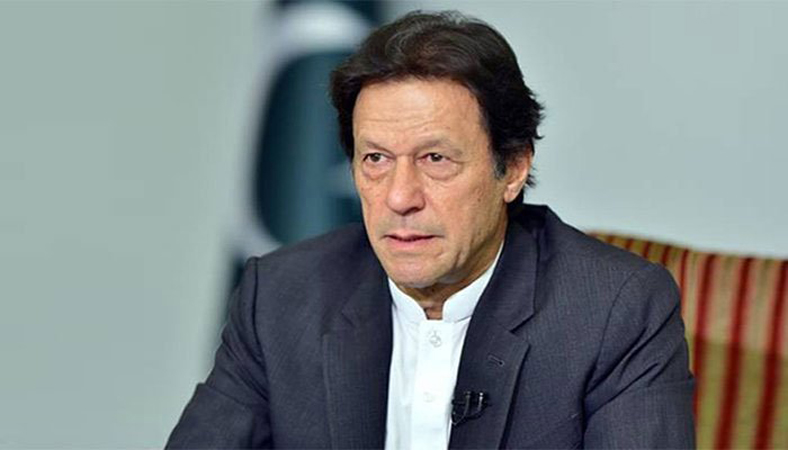IK again avoids unconditional apology in contempt case; PTI workers congregate at Banigala
Arrest warrants for former prime minister and PTI Chairman Imran Khan have been issued in Islamabad in connection with his remarks regarding Additional District and Sessions Judge Zeba Chaudhry at an August 20 public rally in Islamabad, it emerged on Saturday.
The arrest warrants dated September 30 were issued by Senior Civil Judge Rana Mujahid Rahim.
The arrest warrants dated September 30 came to light hours after Imran submitted to the Islamabad High Court an affidavit in a contempt case against him, saying he had realised he “might have crossed a line” in his criticism of Chaudhry and was willing to apologise to her “if she got an impression” that he had crossed a line.
The police said that after the Islamabad High Court struck down terror charges from a case registered against Imran for his remarks, the case was transferred to a sessions court and the PTI chief had not obtained his bail from there.
The police said he had also not attended the last court hearing on the matter and the arrest warrant was thus issued to ensure his presence.
The court had sought the affidavit during a hearing on September 22, when Imran had offered to tender an apology to Chaudhry, who had earlier caught flak from the PTI supremo after approving his close aide Shahbaz Gill’s physical remand in a sedition case. Imran’s offer to apologise had seen him escape the indictment.
At the August 20 rally, Imran had warned the judge of dire consequences, as well as the judiciary for what he had called its “biased” attitude towards his party. In his affidavit submitted to court Saturday, Imran said he had “realised during these (contempt) proceedings before the honourable court that he might have crossed a red line while making [a] public speech on August 20, 2022”. However, he added, he never intended to threaten Judge Chaudhry and “there was no intention behind the statement to take any action other than legal action”.
He said he wanted to assure the IHC that he was willing to explain and clarify before Judge Chaudhry that“ neither he nor his party seeks/sought any action“ against her and he was willing to apologise to her “if she got an impression that the deponent (Imran) had crossed a line”.
The PTI chief assured the court that in future he would not do anything that would hurt the dignity of any court and the judiciary, especially the lower judiciary.
He also expressed his willingness to take any further steps that the IHC “deems necessary and appropriate for the satisfaction of the honourable court that he never intended to interfere in the process of the court or impugn the dignity or independence of the judiciary”.
Imran assured the court that he would always stand by his statement in the affidavit in letter and spirit.
The decision to initiate contempt proceedings against Imran was taken by the IHC’s Justice Aamer Farooq on August 22 while hearing a petition challenging Gill’s police remand. The court had summoned Imran on August 31 and subsequently issued him a show-cause notice.
A day before the hearing, the former prime minister had submitted a reply before the IHC wherein he had expressed his willingness to “take back” his words about Judge Chaudhry if they were “regarded as inappropriate”. He had pleaded before the IHC that the judges who had agreed to initiate the case against him should consider withdrawing themselves from the bench as, according to him, they had pre-judged the matter.
However, the IHC had deemed the response to be “unsatisfactory” and asked the PTI chief to submit a “well-considered” response.
Following this, Imran had submitted another reply to the court. In the revised response, Imran had stopped short of rendering an unconditional apology.
On September 8, the IHC had decided to indict Imran, once again calling his response “unsatisfactory”.
However, at the next hearing on September 22, when it was expected that charges would be framed against the PTI chief, Imran had offered to tender an apology to Judge Chaudhry and escaped the indictment.
Following his statement in the court, the larger bench hearing










